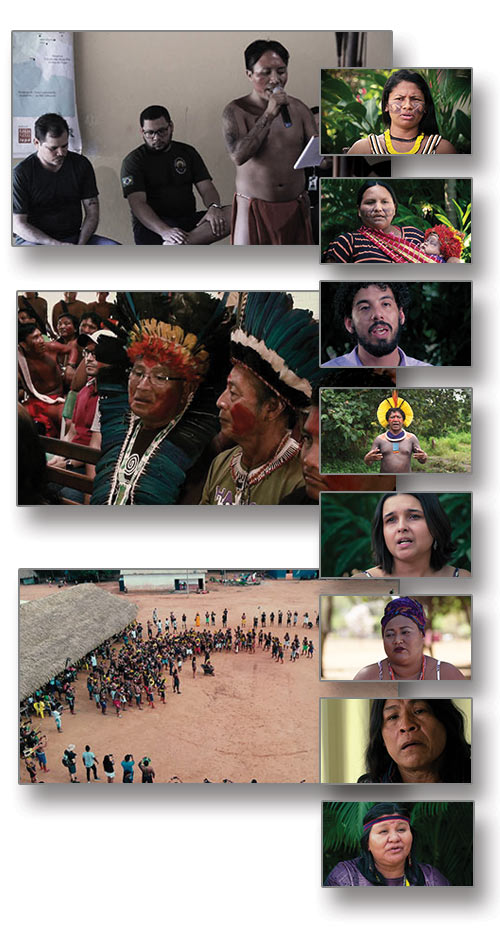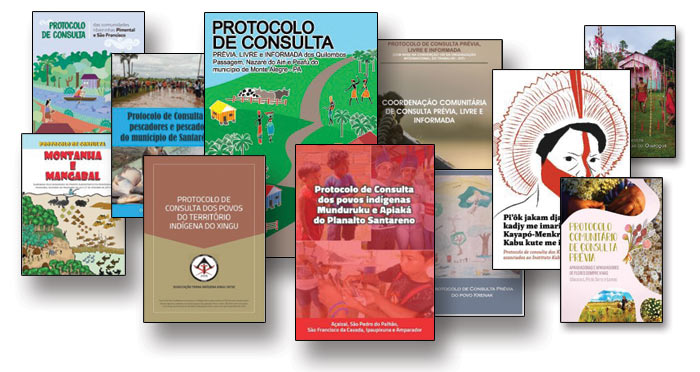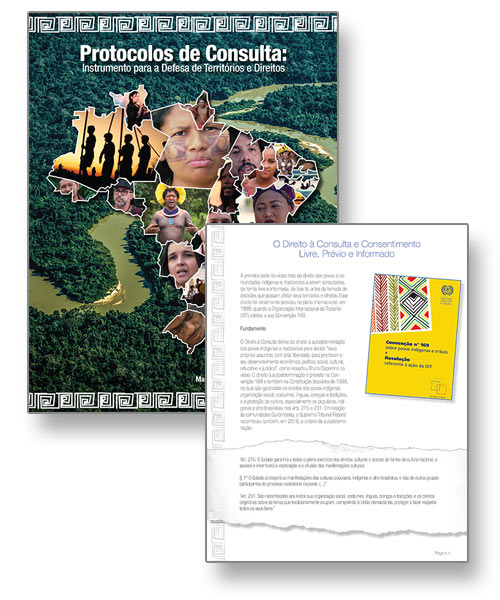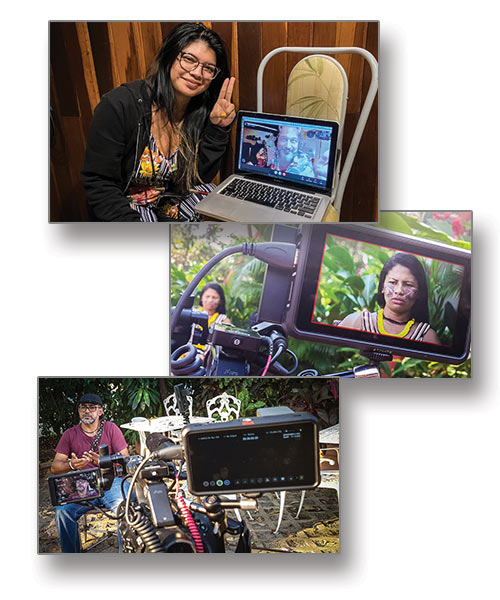


The video “Consultation Protocols: Instrument for the Defense of Territories and Rights” was produced by International Rivers and directed by Todd Southgate. It portrays an initiative that emerged within the movements of indigenous peoples and other traditional communities that aims to ensure the right to free, prior and informed consultation and consent on policies and projects that affect their territories and lives. This video aims to share information and support capacity building workshops on the topic.
It has 28 mins and is divided into four parts, in the first part it contextualizes the Right to and Free, Prior and Informed Consultation and Consent in relation to the 1988 Brazilian Constitution and the Convention 169 of the International Labor Organization (ILO), the United Nations Declaration on the Rights of Indigenous Peoples (UNDRIP) and the American Declaration on the Rights of Indigenous Peoples, from the Organization of American States (OAS), and its relation to the right of self-determination, or the right decide what you want for your land and people.
In the second part, it explains what the Autonomous Consultation and Consent Protocols are, which serve to determine how the consultation process with each people or community will be carried out and why they arose, due to the government’s disrespect to the right of consultation or its culturally inappropriate implementation. The Wajãmpi were the first Brazilian people to create a Protocol, and Jatuta Wajãmpi tells us a little about the experience.
Then, the video shows what should be considered in the elaboration of the protocols. In the words of Leonardo Rikbaktsa, Maria Leusa Kabá and Vanuza Cardoso, the preparation of the documents of the consultation protocols must respect the culture and decision-making of each people, including the language and time it takes for each community to make their decisions, and include all members.
In the fourth part, the video deals with the effectiveness of the protocols. For example, Maria Leusa Kabá tells us how they communicated about their protocol to the government and media to guarantee awareness of it and Bel Juruna tells of the success of the Juruna people in the judiciary, as they managed to stop a destructive project in order for their protocol to be respected. The video also mentions the care that must be taken to avoid risks.
At the end, it highlights the important role of unity and persistence of ndigenous peoples, quilombolas, riverside communities and other traditional communities and how this instrument can be a tool to defend their territories and rights, to build towards a better future.

What are Consultation and Consent Protocols?
The Consultation and Consent Protocols are documents prepared by each indigenous people or traditional community which establish the form and process in which they want to be consulted, in a way that respects their cultures, traditions and social organization.
Free, Prior and Informed Consultation (FPIC) is a process based on the self-determination of peoples, which must be done in good faith, initiated by the Government, according to the procedure indicated by peoples and communities. At the end of this process, people and communities can issue their consent, propose an agreement or even say NO to the object of the consultation.




Video booklet, with questions for conversation circles and more information
Simple printable version with questions for conversation circles
Other relevant materials (in Portuguese)
Protocolos de Consulta Prévia e o Direito à Livre Determinação, Fundação Rosa Luxemburgo:
Protocolos de Consulta e Consentimento Prévio, Fase
International Treaties and Declarations
Convention 169, International Labor Organization (ILO)
American Declaration on the Rights of Indigenous Peoples, Organization of American States (OAS)
United Nations Declaration on the Rights of Indigenous Peoples (UNDRIP), United Nations (UN)


About the director: Todd Southgate is an award-winning environmental filmmaker & cinematographer with fieldwork in over 30 countries. He has dedicated 25 years of his life to television production & journalism and 18 years exclusively to environmental communications. He has extensive experience covering the Amazon rainforest & the Belo Monte hydroelectric project, among others..
Directed and edited: Todd Southgate
Producer: Brent Millikan
Narration: Nayra Paye (Português), Monti Aguirre (Espanhol), Todd Southgate (Inglês)
Interviewees: Andreia Fanzeres, Antonio Oliveira, Bel Juruna, Bruno Caporrino, Doto Taka Ire, Iremar Ferreira, Jatuta Wajãmpi, Kumaré Wajãpi, Leonardo Rikbaktsa, Minã Myky, Maria Leusa Kabá, Rodrigo Oliveira, Vanuza Cardoso e Umenã Myky.
Music: Marlui Miranda
Script: Anna Maria Cárcamo, Biviany Rojas Garzon, Brent Millikan, Isabel Harari, Johny Giffoni, Liana Lima, Todd Southgate
Additional Images: Todd Southgate, Instituto Kabú, Darcy Ribeiro Foundation, Greenpeace Brasil, Juliana Pesqueira
Production Assistants: Anna Maria Cárcamo, Pablo Montiel, Filipe Ferreira Marques, Rafael Maranhão
Additional Music: Audioblocks, Daniel M. Ring, Christina Nemo
Special thanks: Nayra Paye Kaxuyana , Marlui Miranda Cristina Orpheo, Erika Yamada, Inimá Krenak, Maíra Krenak
Additional Documents: Anna Maria Cárcamo, Brent Millikan, Johny Giffoni, Todd Southgate
Financial Support: Mott Foundation, Moore Foundation
